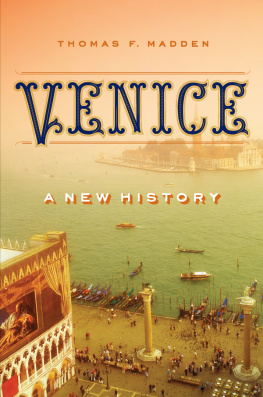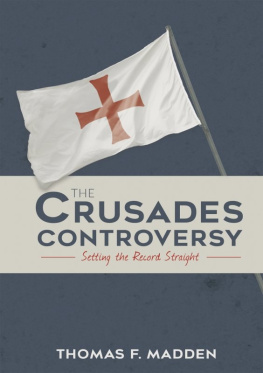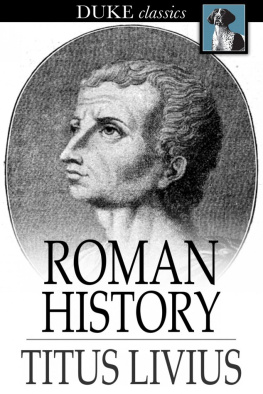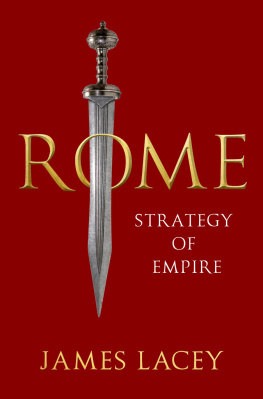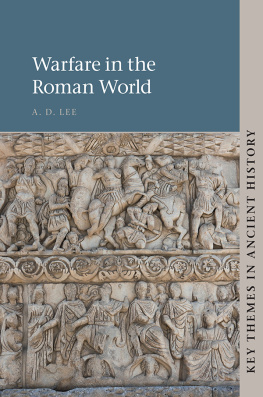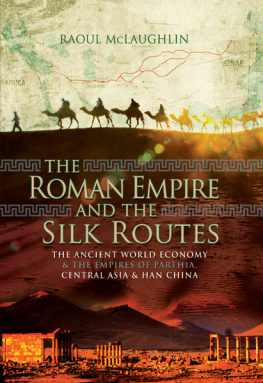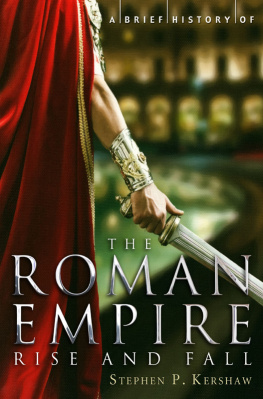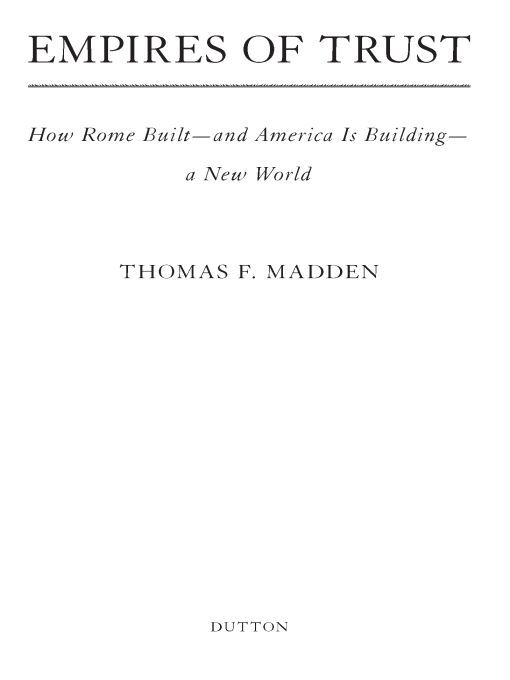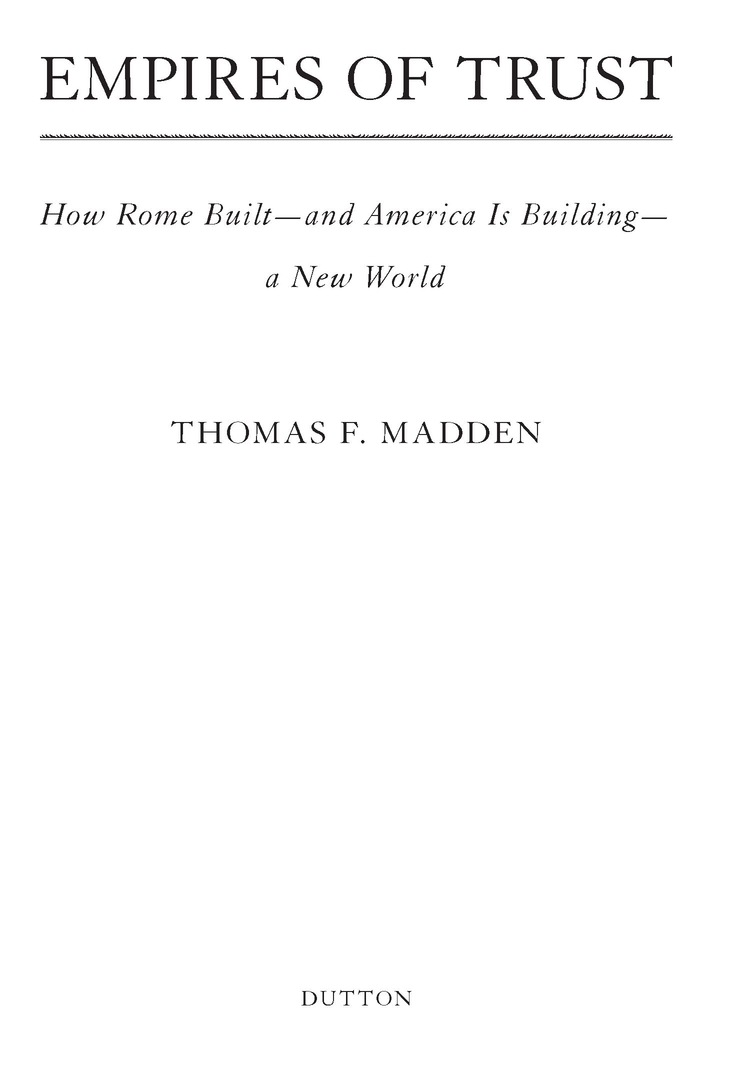Table of Contents
For Helena and Melinda
PREFACE
There is an exceptionally beneficial and fruitful advantage to be derived from the study of the past. There you see, set in the clear light of historical truth, examples of every possible type. From these you can select for yourself and your country what to imitate, and also what, as being mischievous in its inception and disastrous in its consequences, you should avoid.
Titus Livius (Livy), Ab urbe condita, preface
By historical standards, the United States is a young country. We shouldnt be surprised, then, if Americans tend to view the great expanse of human history as stretching not too far beyond the past generation or two. And they do. Dont believe me? If you have a television handy, try turning on the History Channel right now. Then wait for the end of the commercial. There, see? Odds are that you are watching a show about something that occurred less than one hundred years agoprobably a documentary on World War II. The people at the History Channel know what sells. And Nazis sell.
As a history professor, I see this all the time in my undergraduate students. Like many Americans, they consider the historical period from World War II until the present to be modern history. Anything between the Declaration of Independence and Pearl Harbor is lumped into a foggy world of early history. Before 1776 brings us to ancient history, which is, well, ancient history. It doesnt matter. As a specialist in the premodern world, that naturally irritates me. But if Im honest, I also have to say that it provides a nice measure of safety and security too. Historians of the twentieth century are forever caught up in modern politics, always scrutinized for their political leanings and the effect those have on their histories. Medieval historians, on the other hand, are free to research and tell their stories without a thought about controversy. After all, no one cares anymore if you are a Guelf or a Ghibelline. For that reason, premodern historians like me are among the most sheltered of the ivory tower academics. Although most people think that we should have them, premodern historians are often thought of as odd antiquarianslike an old uncle who is forever leafing through dusty scrapbooks in the attic. Hes harmless and his stories are good. But you certainly wouldnt ask him for anything serious, like a job or investment advice.
I have spent some time in that happy, quiet attic and I can tell you that it is nice. (If you like that sort of thing.) I thoroughly expected to spend the rest of my life examining big questions like the reception of ecclesiastical reform in high medieval Venice or the sources of Pope Urban IIs information on Turkish-held Palestine. These studies would allow us (and by us I mean other interested professional historians with the training and interest to read my scholarship) to better understand these aspects of medieval civilization. Studies such as these are very important. Really. It is this kind of specialized research that forms the building blocks of history. Sure, only a handful of people will read those journal articles, but among them some will write specialized books incorporating my research, and then others will use those books to write broader texts that might be assigned in classrooms or even find a general audience. At least thats the way its supposed to work.
Then came the knock on my attic door. It seems that a group of Islamist terrorists had flown planes into the World Trade Center and the Pentagon. Their organization, al-Qaeda, had a host of grievances against the West, only a few of which occurred after World War II. When Americans asked the question Why do they hate us? the answer they got back was a swirl of events including the fall of the Ottoman Empire, the Reconquest of Spain, and the Crusades. Suddenly, ancient history was no longer so ancient. Opening the creaky attic door, I was surprised to see a throng of reporters with microphones, notebooks, and cameras. They had a lot of questions.
Before 9/11 the media and I were strangers. No longer. In the hundreds of interviews that I have given since then Ive learned a lot about reporters and the press. Although approval ratings for journalists have now sunk to lawyer levels, I have found most interviewers to be pleasant people. They remind me very much of my undergraduates. Like most Americans, they tend to have limited exposure to history before the last century. And what they do know comes disproportionately from television and movies. Many reporters that I talked to swallowed whole the terrorists contention that the Crusades marked the beginning of the Wests long war against Islama war that continues to this day. They were genuinely surprised to learn that the Crusades had nothing at all to do with modern events in the Middle East or the development of Islamist extremism. I have seen more than one incredulous face stare at me in amazement as I explained that the Crusades began as a response to Muslim attacks on Christians. Thats not what they had heard.
During those years I learned some lessons about the importance of ancient history. Simply put, ignorance of the past is dangerous. We are in large part defined by our culture and our civilization. If we fail to learn its history, then we have no defense against those who would warp it or corrupt it. In other words, we leave to others, including our enemies, the task of defining us.
Ignorance of the past is dangerous in another way too. It is natural for human beings to look to the past in order to make decisions about the future. We do it all the time in our personal lives. But because so many Americans consider modern (and therefore relevant) history to begin with World War II, we are drastically reducing the lessons and experiences that we can draw from when charting our future course. American schoolchildren today are not trained in Latin or Greek or the Classics or even the history of the medieval world. Instead, they get a smattering of U.S. history sprinkled over the top of a relatively vapid social studies curriculum. Naturally enough, when they grow up and begin making important decisions they will not look to Plato, Cicero, or Dante for guidance. Instead, every challenge will be forcibly jammed into the mold of the last centurys events.
It is already happening. Simply look at approaches toward recent American conflicts, including the current occupation of Iraq. For those on the political left, every war is another Vietnam. American intervention overseas, therefore, is usually wrong and must always be short. If it continues longer than a few months, its a quagmire. The answer, then, is to retreat and avert ones eyes from the aftermath. For conservatives, on the other hand, every conflict is World War II. A clear evil has moved against the United States and it must be defeated, no matter the cost. Appeasement only emboldens the enemy. If your historical horizon extends just sixty years, those are the sorts of lessons you are likely to draw. It is a safe bet, though, that few American policy makers or politicians are looking at Iraq in terms of British colonial wars, or the Mongol invasions, or the campaigns of Trajan, or the conquests of Alexander. Those, after all, are ancient history.
My experiences in the wake of 9 /11 led me to reevaluate my role as a scholar and an educator. Although I remain devoted to my research, I see now that it is equally important to speak about history to someone other than my colleagues. History belongs to everyone. Sure, it can be complex. But that doesnt mean that historians shouldnt try to explain it. And if historians dont do it, then we have no right to complain when journalists, novelists, and freelance writers try their hands at it. (And, trust me, we complain.) In short, although I still enjoy my attic, Im resolved to spend part of my time downstairs telling the family just what Ive found. I hope they dont mind the dust.


